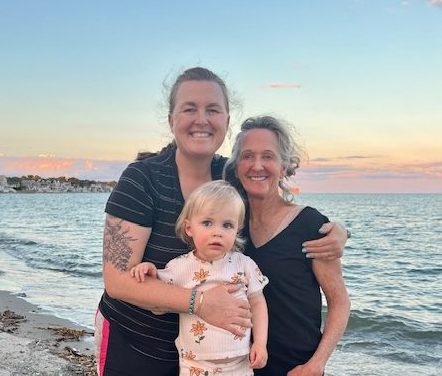How to help teens shelter in place
This article has been shared from the Greater Good Science Center at UC Berkley.
Teens are not made for isolation, which makes COVID-19 especially hard on them. Here’s how to help your teenager to see the bigger picture.
Last weekend, my kids began arriving home from their various schools. We invited our oldest daughter’s longtime best friend, Lena, over for a homecoming dinner. She’s like a member of our family, and we were excited to see her, too, despite closing schools and social-distancing recommendations. The kids are all healthy, we reasoned. We had Lena wash her hands when she came in; we resisted hugging her.
On Monday we got a government order to shelter in place, and having had Lena over the night before suddenly seemed like a reckless mistake. But not all families in our neighborhood agree.
Parents all around me are reasoning that their high schoolers have been hanging out together anyway, so they’ve already “shared germs.” Lots of seemingly rational (but dangerously short-sighted and scientifically unvalidated) arguments for letting kids out of the house are circulating, including the belief that teens and college students won’t get seriously sick, and that they aren’t contributing to the spread of COVID-19 beyond their “friend groups.”
Teenagers, college students—and other families—can be difficult to control. When asked how she is holding up, a friend texted “2 of my kids are at home being good citizens and students doing homework. The other is at the beach with her friends being a part of the problem.”
Another worried mother of younger kids proclaimed: “Why, for the love of God, is it so hard to follow the guidelines and ISOLATE?”
It isn’t that we aren’t trying. Isolating teenagers and young adults is hard. Another friend is understandably coming unglued. “My kids keep skating around rules and being with friends every time I close my office door to work.” She has two teenagers and a big corporate job she’s got to keep doing. She’s trying to care for elderly in-laws, and her younger daughter needs medication that she’s having trouble securing. “I feel like I should be able to control them. I’m trying. But my anxiety is so heavy. I’m emotionally exhausted.”
Time is of the essence. Accounts from Italy make it clear that we need to get our young people—those who are carrying the coronavirus but not showing any symptoms—to stop spreading it. TODAY matters. “It only takes a one-day difference in action to see a 40 percent reduction in cases—that’s enormous. It really conveys the urgency of the situation,” infectious disease epidemiologist Dr. Britta Jewell explained to the New York Times.
Teenagers and college students have amplified innate, developmental motivations that make them hard to isolate at home. The hormonal changes that come with puberty conspire with adolescent social dynamics to make them highly attuned to social status and peer group. Friends feel like everything. Social isolation is hard for humans of all ages, but it is more profoundly distressing for adolescents—especially if they all think that their friends are all hanging out without them.
In addition, their hard-wired attunement to social status makes them super touchy about whether or not they are being treated like children. Their most central developmental job during adolescence is to individuate, to leave the nest and become independent from us, their parents. So, of course, they feel infantilized when ordered to shelter in place.
What can we do to encourage teens to comply with social-distancing measures? We need to work with their existing motivations. Teens are unlikely to be persuaded by (brilliant! logical! passionate!) arguments that conflict with their innate, developmental motives.
Let’s start with their high motivation to individuate, to be out from under our control. We can work with this existing motivation by treating them like competent young adults rather than little kids. We can do this by:
• Expecting them to contribute to our household in meaningful ways. They can help with meal prep and household cleaning. We expect our kids to keep family spaces clear of their belongings, and also to help with actual cleaning by vacuuming and wiping down the counters. Being nice to their siblings—keeping conflict low amid tight quarters—is a meaningful contribution. Planning fun activities for the family to do together might be the most important contribution of all!
• Allowing them to manage themselves, their own schoolwork, and their other responsibilities without nagging or cajoling. This does not mean that we won’t set expectations or establish the structure and support they need to function in this new reality. Nor does it mean that we won’t be engaged with them. It does mean that we give them space to operate freely within the limits we agree to as a family.
• Asking them to help us with our work to the extent that they can. “My kids keep interrupting me on Zoom calls for stupid shit,” a friend texted me, frustrated to the brink. Most teens need us to be clear about how their constant interruptions affect us. Try using feeling words instead of criticizing them. For example, explain rather than accuse: “I feel embarrassed and stressed when I’m on a video call and you keep asking me questions” vs. “It is inconsiderate and selfish of you to keep interrupting my meetings.”
• Using non-controlling, non-directive language. One good way to do this is to ask them questions instead of telling them what to do. For example: “Is there anything that I can do to help you get some exercise today?” My all-time favorite question is this one: “What’s your plan?” As in: “What’s your plan for getting your homework done?” This makes it clear that they are still in control of their own behavior, and it helps put them in touch with their own motivations and intentions. Often teens simply need to make a plan, and sometimes if they aren’t asked to articulate it, they won’t do it—especially those who are used to being nagged because they know their parents will eventually get frustrated and do their planning for them.
• Acknowledge that all of this is so hard. Many students coming home from school are experiencing great losses right now. Their feelings of grief, anxiety, stress, and isolation are hard to cope with. And also: One of the great lessons of adulthood is that they can do hard things.
We can also tap into their high attunement to the social world by emphasizing their social value—how their lives have a purpose, meaning, and impact on other people. While Generation Z’s impact on this global pandemic might be obvious to us adults, it’s not to many of our kids. Here is what we said to our teen who was resisting isolation:
• We know that you want to see your friends. We know that you are bored and lonely.
• We hope you see clearly that you are not a passive actor here, along for the ride. Your actions are directly affecting the course of this crisis.
• We are wondering: What do you truly care most about in this crisis?
• Who can you help, and who are you concerned that you might harm? How can you use your skills to help the world right now?
• Your grandchildren are going to ask you about the role you played during this pandemic. What will you tell them?
If they just aren’t getting it, try humor. Try asking them to demonstrate their understanding of this graph. Show them the videos coming out of Italy and hospitals here in the US pleading with folks to stay at home.
Help them see that this is not about what they want or expect from life. It’s about what life is expecting from them right now. We expect them to rise to the occasion; to be a part of the solution, not a part of the problem.
The best outcome right now is that we get the virus under control before our hospitals are collapsing. If this happens quickly, my family will accuse me of being too aggressive. They may be angry with me for having unnecessarily ruined a few weeks of their lives. That is the outcome I am hoping for.
No matter what happens, there are incredible, urgent life lessons here. We are teaching our kids both directly and through our own example how to take responsibility—not just for ourselves and our immediate family, but for our local and global community, as well.
We are all being called to demonstrate our character and commitment to others and to the greater good. Our young people are being called, too. Let’s give them the opportunity to step up.
 MYCRMS
MYCRMS





 Virtual Tour
Virtual Tour

